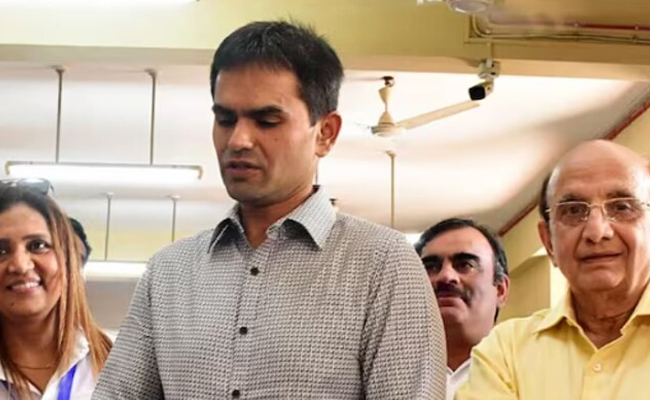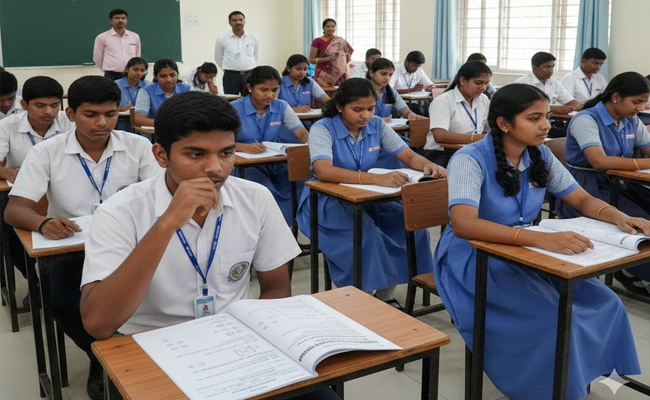Hyderabad, Jan 18: Shubman Gill continued his fine form and slammed his maiden double century in the format, to power India to an imposing 349 for eight against New Zealand in the first ODI of the three-match series here on Wednesday.
Opting to bat, Gill blazed his way to 208 off 149 balls with the help of 19 boundaries and nine sixes to ensure India post a big total.
Along with skipper Rohit Sharma (34), Gill shared 60 runs for the opening wicket before going ballistic.
Daryl Mitchell (2/30) and Henry Shipley (2/74) picked up two wickets each for the visitors.
Brief Scores:
India: 349 for 8 in 50 overs (Shubman Gill 208; Daryl Mitchell 2/30).
Let the Truth be known. If you read VB and like VB, please be a VB Supporter and Help us deliver the Truth to one and all.
Kochi (PTI): The tickets booked during the day for 'The Kerala Story 2-Goes Beyond' were being refunded and the film has not been released, the lawyers for the petitioners who opposed the movie's screening said on Friday.
Advocate Maitreyi Sachidananda Hegde, who represents one of the petitioners -- Sreedev Namboodiri -- told PTI in the afternoon that she will not be moving a contempt plea against the film's producer as the movie has not been released and the ticket sales were being refunded.
Hegde, in the morning, mentioned before Justice Bechu Kurian Thomas that despite a stay on the release of the film, ticket bookings for the film were going on.
She mentioned it before the single judge even as the matter of the release of the movie was before a division bench which had reserved order regarding it on Thursday after a late night hearing.
She also told Justice Thomas that she will verify whether the film was being screened in theatres during the day and accordingly, will file a contempt plea.
In the afternoon, Hegde said that on verification she found that "the film has not been released and the ticket amounts were being refunded".
"So, I will not be moving a contempt petition," she said.
Justice Thomas on Thursday stayed release of the film for 15 days saying that prima facie there was a manifest non-application of mind to the requirement of law by the censor board, CBFC.
The judge also said that "the possibility of communal disharmony or denigration of a community also being prima facie involved in the movie", its release without scrutiny by the higher authorities would be legally improper.
The court had further said that the content of the film's teaser has "a prima facie potential to distort public perception and disturb communal harmony".
Later in the night, the producer -- Vipul Amrutlal Shah -- moved an appeal before a division bench of justices Sushrut Arvind Dharmadhikari and P V Balakrishnan which reserved order in the matter after hearing extensive arguments from all stakeholders. However, the bench did not issue any interim direction staying the single judge's decision.





